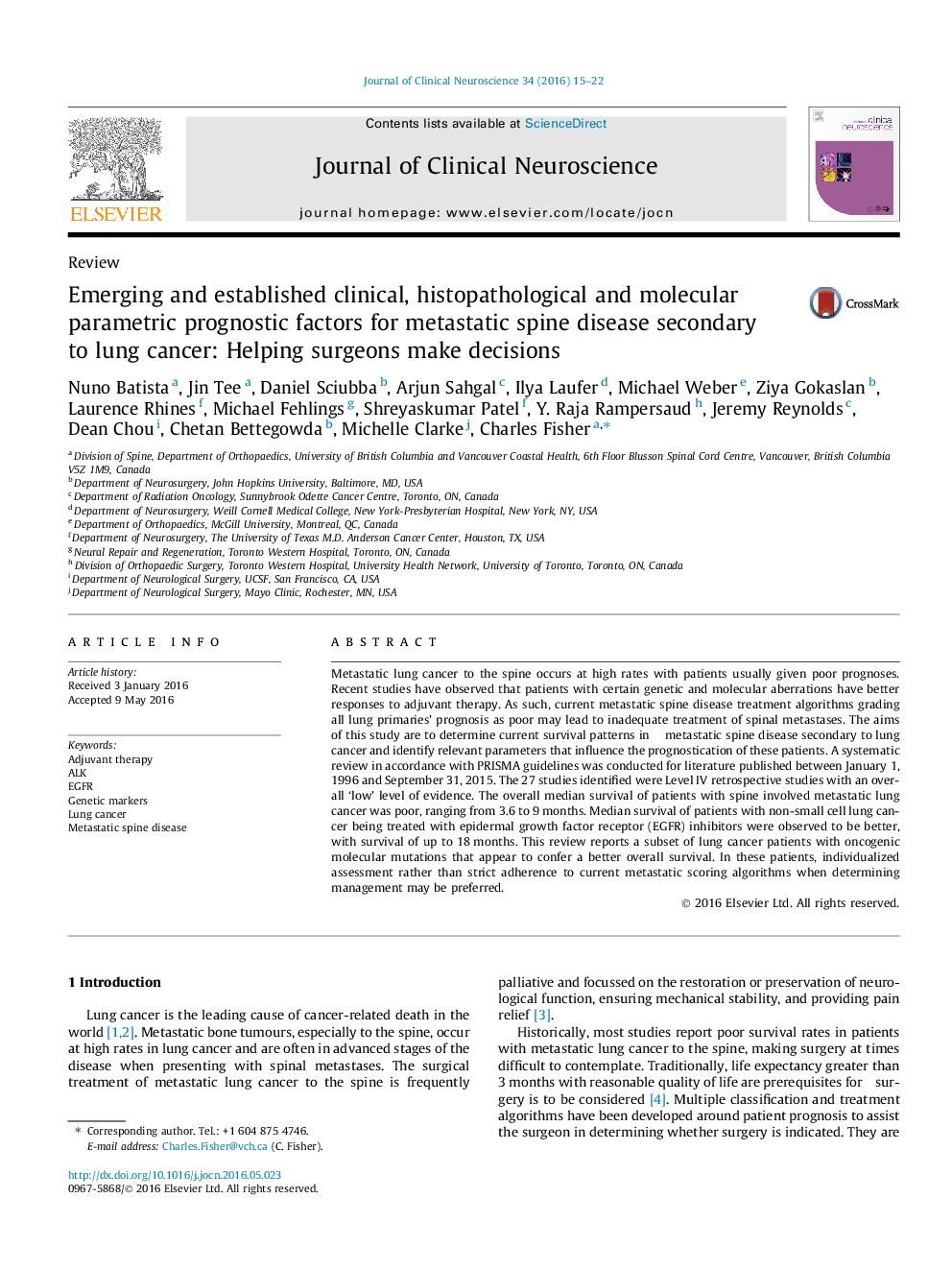| کد مقاله | کد نشریه | سال انتشار | مقاله انگلیسی | نسخه تمام متن |
|---|---|---|---|---|
| 5629846 | 1580282 | 2016 | 8 صفحه PDF | دانلود رایگان |
- Patients with lung metastases to the spine are given poor prognoses.
- Overall median survival of these patients is between 3.6 and 9Â months.
- A subset with molecular mutations appears to confer better overall survival.
- Treatment with EGFR inhibitors report median survival of up to 18Â months.
- Strict adherence to current metastatic treatment algorithms may be flawed.
Metastatic lung cancer to the spine occurs at high rates with patients usually given poor prognoses. Recent studies have observed that patients with certain genetic and molecular aberrations have better responses to adjuvant therapy. As such, current metastatic spine disease treatment algorithms grading all lung primaries' prognosis as poor may lead to inadequate treatment of spinal metastases. The aims of this study are to determine current survival patterns in â¨metastatic spine disease secondary to lung cancer and identify relevant parameters that influence the prognostication of these patients. A systematic review in accordance with PRISMA guidelines was conducted for literature published between January 1, 1996 and September 31, 2015. The 27 studies identified were Level IV retrospective studies with an overall 'low' level of evidence. The overall median survival of patients with spine involved metastatic lung cancer was poor, ranging from 3.6 to 9 months. Median survival of patients with non-small cell lung cancer being treated with epidermal growth factor receptor (EGFR) inhibitors were observed to be better, with survival of up to 18 months. This review reports a subset of lung cancer patients with oncogenic molecular mutations that appear to confer a better overall survival. In these patients, individualized assessment rather than strict adherence to current metastatic scoring algorithms when determining management may be preferred.
Journal: Journal of Clinical Neuroscience - Volume 34, December 2016, Pages 15-22
